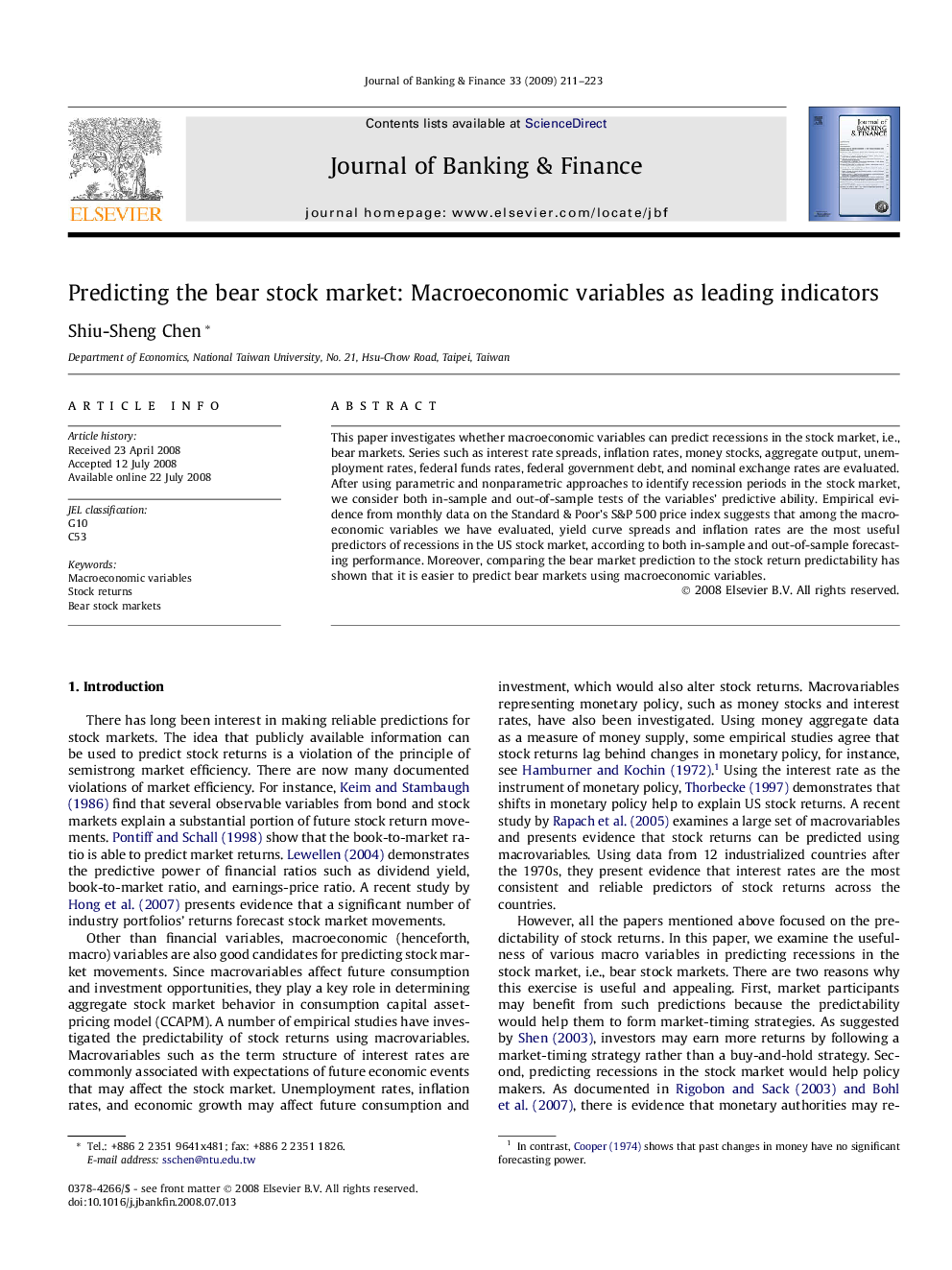| Article ID | Journal | Published Year | Pages | File Type |
|---|---|---|---|---|
| 5090518 | Journal of Banking & Finance | 2009 | 13 Pages |
Abstract
This paper investigates whether macroeconomic variables can predict recessions in the stock market, i.e., bear markets. Series such as interest rate spreads, inflation rates, money stocks, aggregate output, unemployment rates, federal funds rates, federal government debt, and nominal exchange rates are evaluated. After using parametric and nonparametric approaches to identify recession periods in the stock market, we consider both in-sample and out-of-sample tests of the variables' predictive ability. Empirical evidence from monthly data on the Standard & Poor's S&P 500 price index suggests that among the macroeconomic variables we have evaluated, yield curve spreads and inflation rates are the most useful predictors of recessions in the US stock market, according to both in-sample and out-of-sample forecasting performance. Moreover, comparing the bear market prediction to the stock return predictability has shown that it is easier to predict bear markets using macroeconomic variables.
Related Topics
Social Sciences and Humanities
Economics, Econometrics and Finance
Economics and Econometrics
Authors
Shiu-Sheng Chen,
